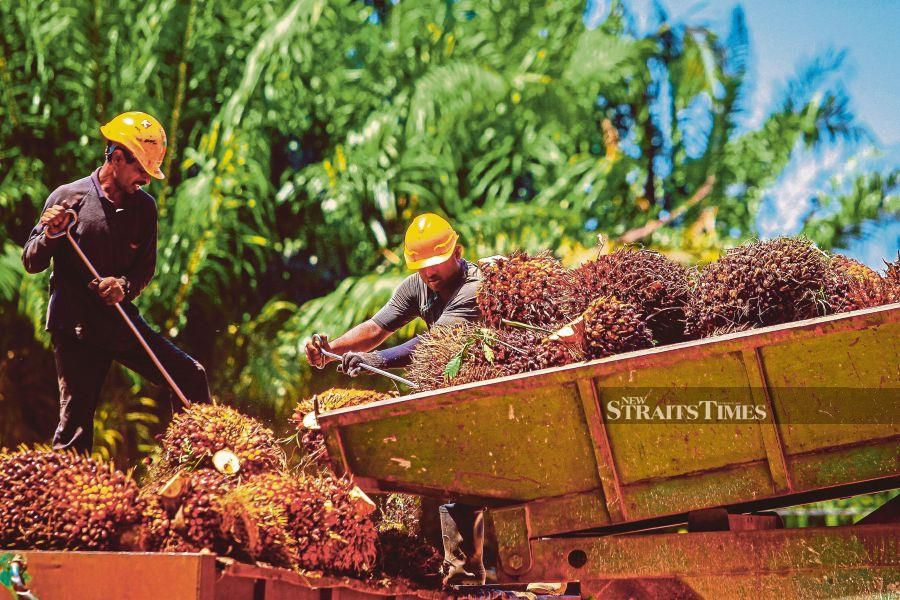
KUALA LUMPUR: The Malaysian Palm Oil Board (MPOB) foresees higher exports of palm oil and palm-based products to China this year as it enhances cooperation in the palm oil trade through the recent signing of the memorandum of understanding (MoU) in Beijing.
The MoU was signed between MPOB and the China Chamber of Commerce of Import and Export of Foodstuffs, Native Produce, and Animal By-products (CFNA).
The signing is expected to further broaden cooperation between the two countries in the palm oil trade, besides strengthening Malaysia’s position and market share in the Chinese market.ADVERTISING
MPOB director-general Datuk Dr Ahmad Parveez Ghulam Kadir said the agency successfully broadens the use of palm oil in value-added food industries through its research and development (R&D) initiatives, helping to secure the market for Malaysian palm oil.
“These include palm-based speciality fats for contemporary moon cakes, palm oil application in Xinjiang Naan, red palm-based extruded snacks, palm-based milk tablets, palm-based Tibetan butter tea, red palm oil-based hot pot paste, palm powder fats as feed additives for dairy cattle and red palm oil as feed for hairy crabs,” he said in a statement today.
Furthermore, Ahmad Parveez said the cooperation is also expected to allow China to participate in the technological exploration of oil palm mechanisation in Malaysia, which will help to increase productivity and reduce reliance on human labour in the plantations.
He said both countries can now jointly promote the exploration, designing, and implementation of new technologies such as artificial intelligence (AI), fifth-generation mobile network (5G), Internet of Things and autonomous vehicles in oil palm plantations in Malaysia.
He noted that these include aerospace, drone and AI technologies from China Great Wall Industry Corporation, particularly on mapping age profiles and detections of disease in the oil palm plantations as well as autonomous harvesting vehicles developed by Shanghai Westwell Information Technology Co Ltd.
“As such, it enhances China’s confidence in Malaysian palm oil and secures the commodity supply for the country.
“Malaysia and China can now work together to jointly promote the supply chain stability of palm oil in both countries and the Malaysian Sustainable Palm Oil (MSPO) certification for food, non-food, biofuel, and feed applications in China,” he added.
Additionally, CFNA will include MSPO in drafting guidelines under the Sub-Committee for Sustainable Agriculture of CFNA and promoting MSPO at their events.
Besides that, MPOB collaborates with Tsinghua University to promote Malaysian palm biofuel in China, which involves a pilot study using Malaysian palm biodiesel in Chinese heavy vehicles.
Palm Oil Research and Technical Services Institute of MPOB (PORTSIM) China also inked a consultancy agreement with China’s Grand Industrial Holdings Co Ltd (GIH) last year.
China was Malaysia’s second-largest palm oil export market in 2022, accounting for 11.2 per cent of total Malaysian palm oil exports.
In 2022, Malaysia’s total export value of palm oil and other palm-based products to China rose 12.9 per cent to RM14.86 billion from RM13.16 billion in 2021.
The total export volume of palm oil and palm-based products increased by 0.30 per cent to 3.14 million tonnes in 2022 from 3.13 million tonnes in 2021.
Source : New Straits Times

